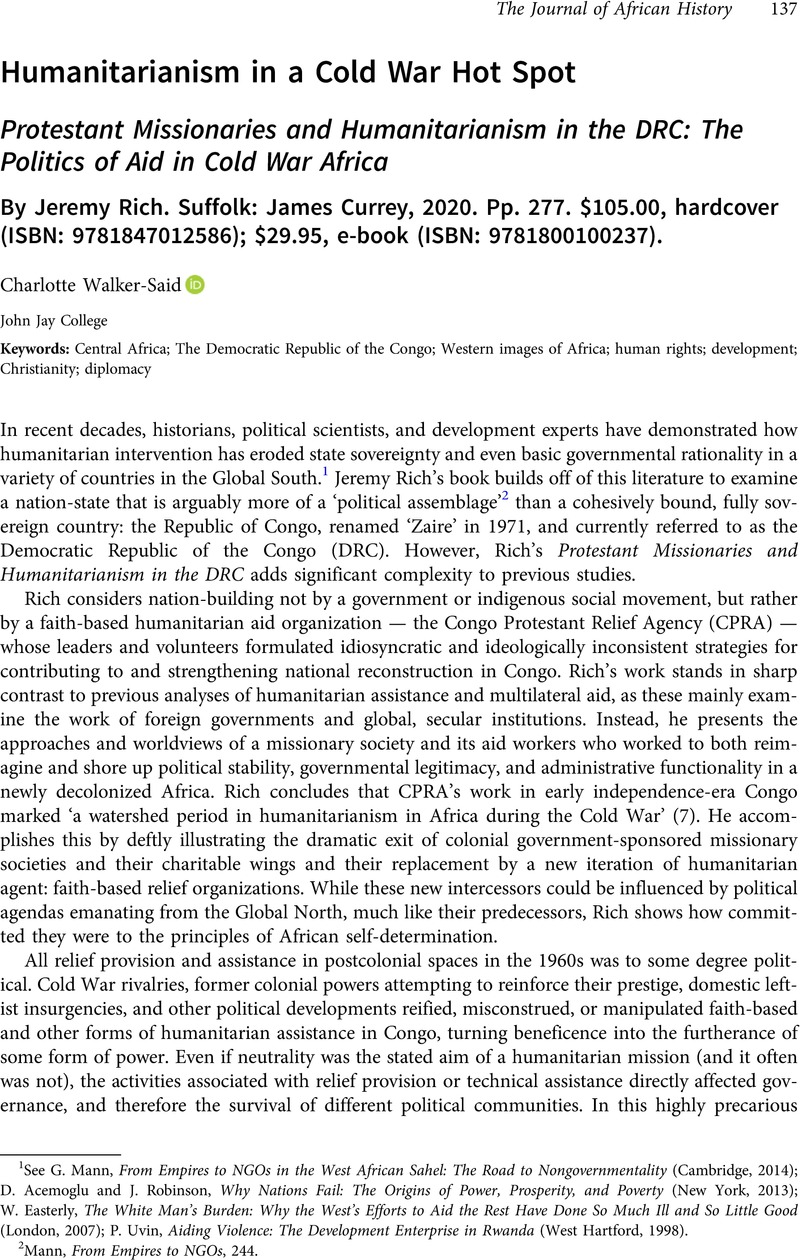No CrossRef data available.
Published online by Cambridge University Press: 17 February 2023

1 See Mann, G., From Empires to NGOs in the West African Sahel: The Road to Nongovernmentality (Cambridge, 2014)CrossRefGoogle Scholar; Acemoglu, D. and Robinson, J., Why Nations Fail: The Origins of Power, Prosperity, and Poverty (New York, 2013)Google Scholar; Easterly, W., The White Man's Burden: Why the West's Efforts to Aid the Rest Have Done So Much Ill and So Little Good (London, 2007)Google Scholar; Uvin, P., Aiding Violence: The Development Enterprise in Rwanda (West Hartford, 1998)Google Scholar.
2 Mann, From Empires to NGOs, 244.
3 Watenpaugh, K. D., Bread From Stones: The Middle East and the Making of Modern Humanitarianism (Berkeley, 2015), 5CrossRefGoogle Scholar.
4 Polman, L., The Crisis Caravan: What's Wrong with Humanitarian Aid? (New York, 2011), 11Google Scholar.
5 Moeller, S. D., Compassion Fatigue: How the Media Sell Disease, Famine, War and Death (New York, 1999)Google Scholar.
6 Nowhere was American isolationism vis-à-vis Africa more clearly demonstrated than in the Trump administration's decision to offer praise and quickly accept the results of Congo's December 2018 presidential election, despite evidence of widespread fraud. See R. Gramer and J. O'Donnell, ‘How Washington got on board with Congo's rigged election’, Foreign Policy, 1 Feb. 2019; R. L. Kelly and M. R. Lehnert, ‘Trump's dangerous isolationism weakens USA and strengthens our adversaries: retired generals’, USA Today, 26 Oct. 2020.
7 W. Eagle, ‘UN investigator: atrocities in DRC fall short of genocide’, Voice of America, 3. Aug. 2018.
8 These include, but are not limited to, Moyo, D. and Ferguson, N., Dead Aid: Why Aid Is Not Working and How There Is a Better Way for Africa (New York, 2009)Google Scholar; Collier, P., The Bottom Billion: Why the Poorest Countries Are Failing and What Can Be Done About It (Oxford, 2008)Google Scholar; Banerjee, A. V. and Duflo, E., Poor Economics: A Radical Rethinking of the Way to Fight Global Poverty (New York, 2011)Google Scholar.